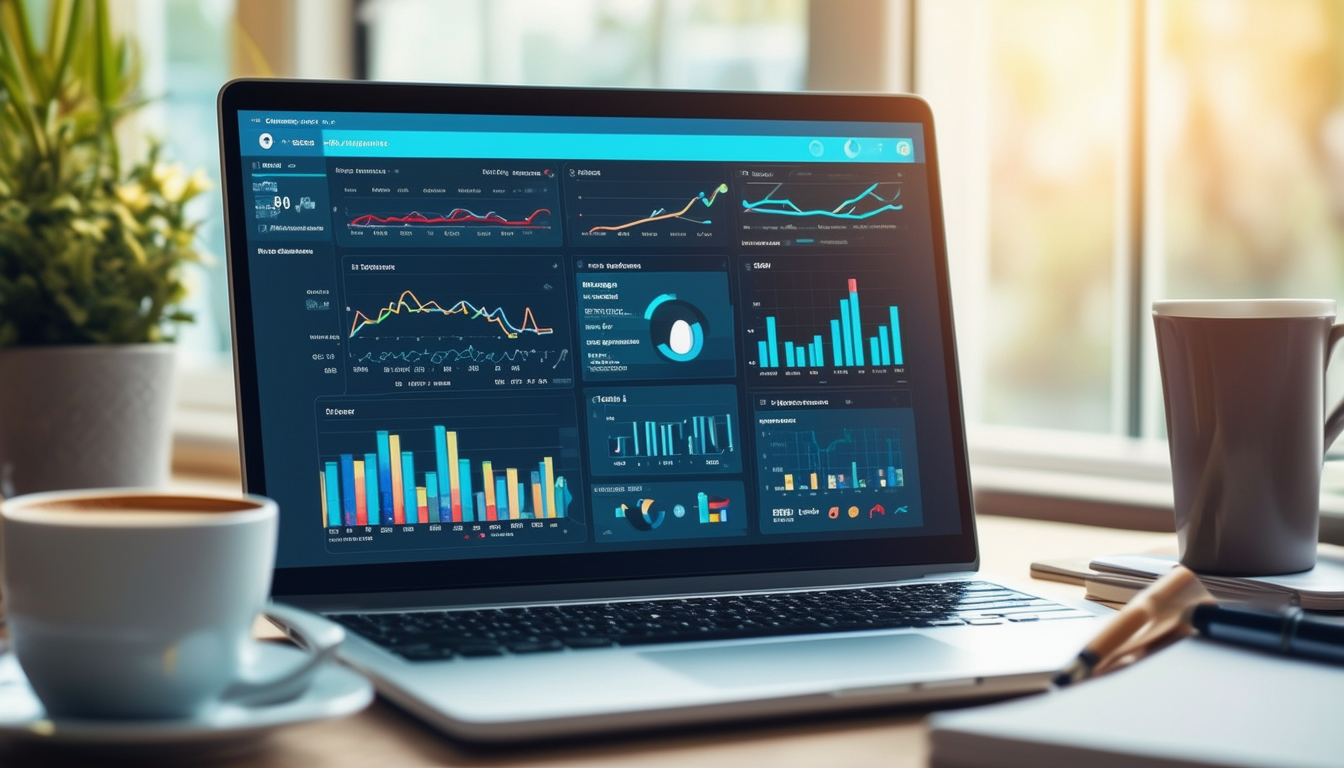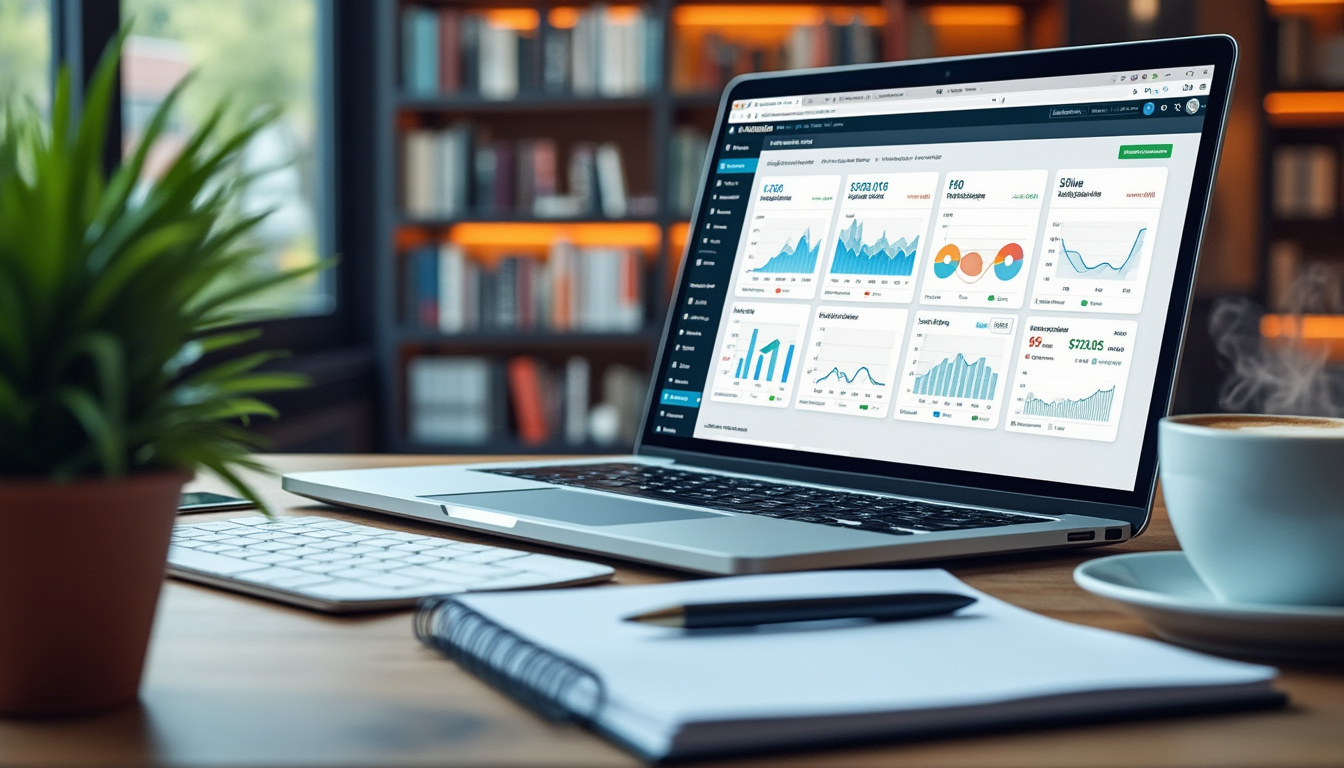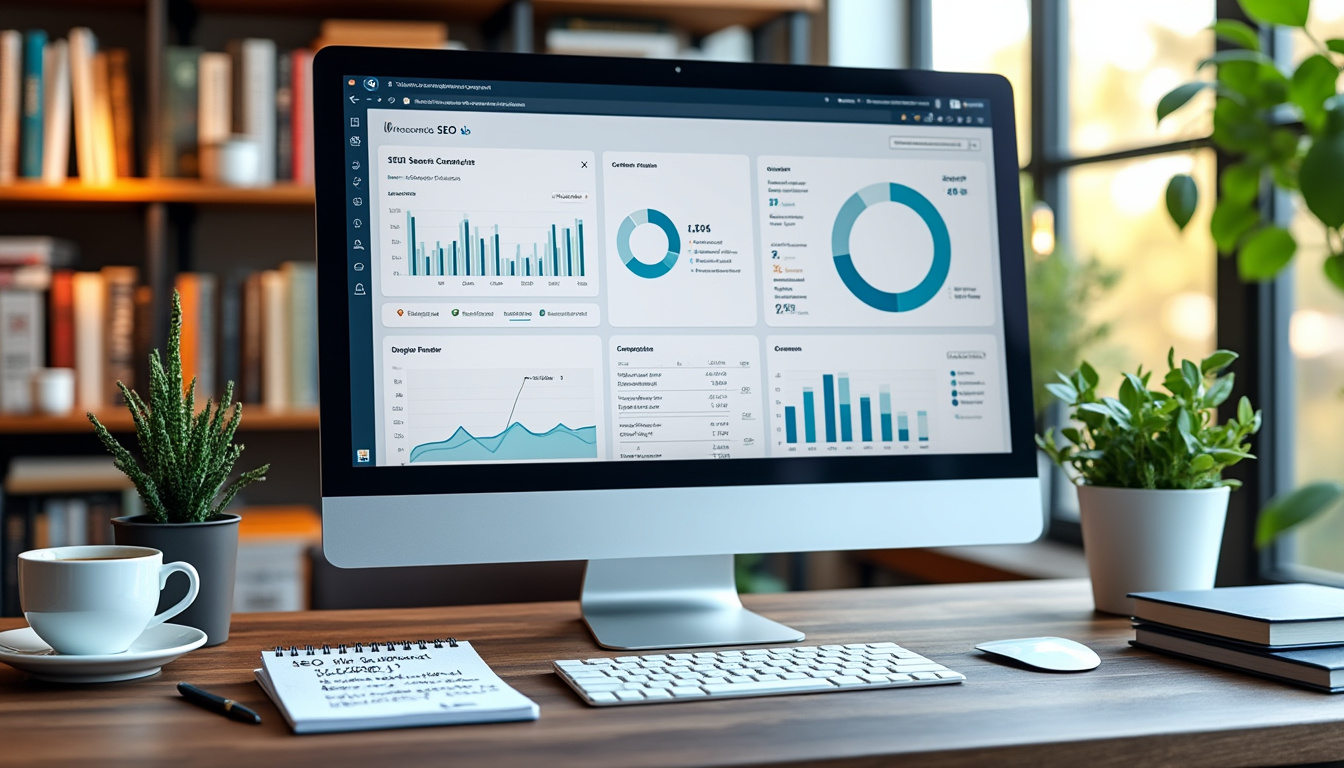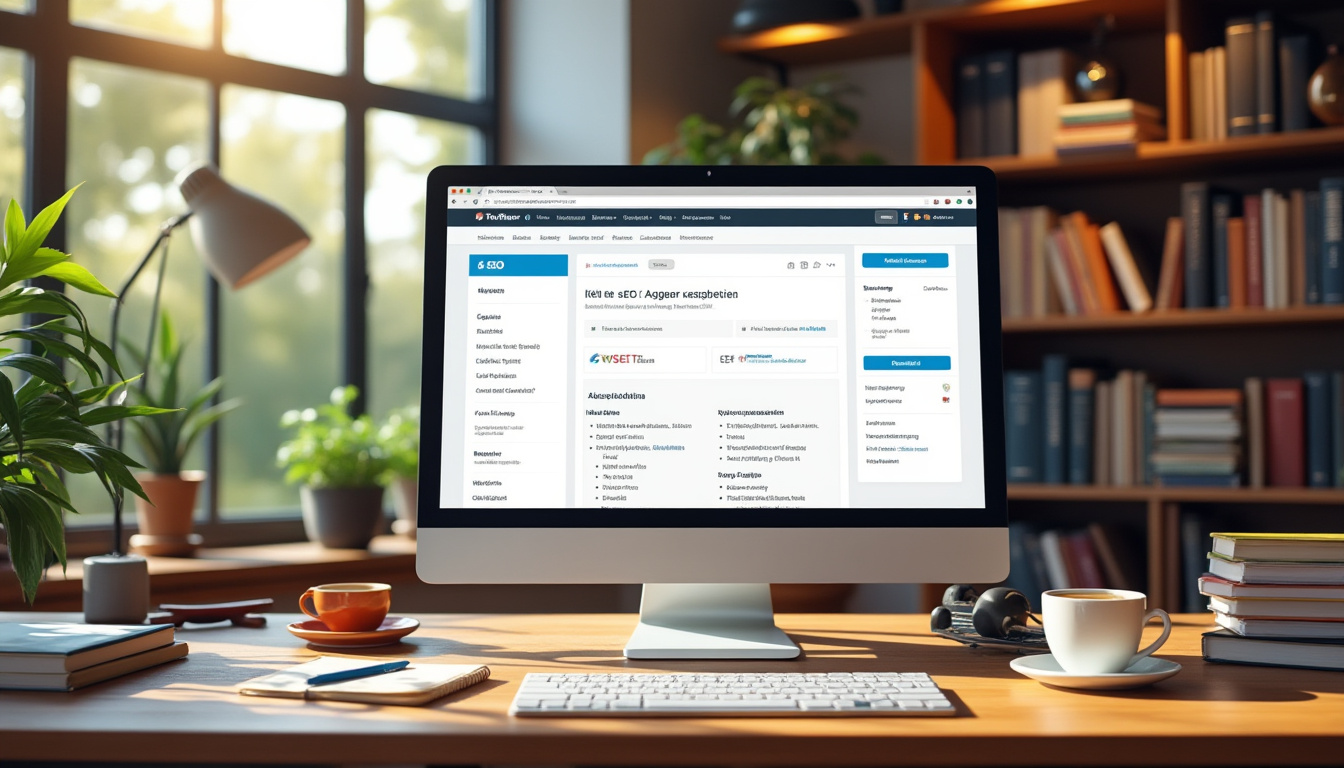To enhance SEO performance for your WordPress blog, start by installing an efficient SEO plugin such as Yoast or Rank Math. Optimize crucial elements like meta titles, descriptions, and URLs to improve search engine visibility. Creating high-quality, relevant content is essential for attracting traffic. Additionally, incorporate Image-Alt-Text for your images to boost their searchability. Implementing an XML sitemap helps search engines navigate your site effectively, ensuring all your important pages are indexed. Finally, conduct regular SEO audits to identify and rectify common SEO mistakes that could hinder your site’s performance.
In today’s digital landscape, ensuring that your WordPress blog stands out in search engine results is crucial for driving traffic and enhancing visibility. This article will provide a comprehensive guide on how to effectively optimize your WordPress blog for better SEO performance. We’ll cover various strategies, including SEO plugins, image optimization, content creation, and the importance of sitemaps, which will help you understand the multifaceted approach required to achieve improved search engine rankings.
The Foundations of WordPress SEO
WordPress is inherently optimized for search engines, making it a popular choice for bloggers and businesses alike. However, building a solid foundation for SEO requires implementing several best practices that ensure your blog is not only search-friendly but also user-friendly. Understanding the basics of SEO can give your blog the boost it needs in search engine rankings.
Understanding WordPress SEO Basics
The essence of WordPress SEO lies in understanding how search engines work. Search engines like Google use bots to crawl websites, gauge content relevance, and rank pages based on numerous factors. Optimizing your blog involves improving these factors, such as page speed, mobile-friendliness, and content relevancy.
Essential Plugins for SEO Optimization
To simplify the process of optimizing your WordPress blog, it is recommended to install SEO plugins like Yoast SEO or Rank Math. These plugins offer built-in tools that assist with editing meta titles, descriptions, and URLs more effectively. They also provide suggestions for improving your content, ensuring it aligns with SEO best practices.
Content Quality and Relevance
Content is a critical factor in determining your blog’s SEO performance. Creating high-quality content that is relevant and valuable to your readers will retain their attention and encourage them to share it with others.
Writing for SEO
Writing for SEO involves not only using keywords strategically but also crafting engaging content. Invest time in researching keywords related to your subject matter, incorporating them naturally within your posts. For detailed insights on writing blog posts that rank well on Google, you can refer to this complete guide to SEO optimization.
The Importance of Regular Updates
Updating your content regularly is another aspect of effective SEO. Fresh content is favored by search engines, and it keeps your audience engaged. Always revisit old posts and update them with new information or improved keywords to maintain relevance.
Optimizing Images on Your Blog
Images play a vital role in creating an engaging user experience. However, they can also impact your site’s loading speed if not optimized properly. Using image alt text allows search engines to understand what the images depict, which can further enhance your SEO.
Best Practices for Image Optimization
To optimize images effectively, ensure they are compressed to reduce file size without sacrificing quality. Additionally, implement descriptive filenames and utilize alt text that includes relevant keywords.
Creating a Sitemap
An XML sitemap serves as a roadmap for search engines, guiding them through your site’s structure and ensuring that all relevant pages are indexed. This helps to enhance your blog’s overall SEO performance.
Building an XML Sitemap
Creating an XML sitemap is straightforward, especially with the use of SEO plugins. Once generated, submit this sitemap to search engines through tools like Google Search Console, increasing the likelihood that your pages will be crawled and indexed efficiently.
Ensuring Mobile-Friendliness
With an increasing number of users accessing content via mobile devices, having a mobile-friendly design is essential. Responsive themes that adapt to different screen sizes can improve user experience and SEO rankings.
Testing Your Site’s Mobile Usability
Use tools such as Google’s Mobile-Friendly Test to gauge how well your site performs on mobile devices. Address any issues that arise to enhance the mobile experience for your visitors.
Using Redirects Wisely
Sometimes, old URLs may need to redirect to new ones. Managing these redirects effectively is crucial for preserving SEO value. Failure to do so could result in broken links that harm your site’s credibility and visibility.
Setting Up Redirects
Plugins offer functionality to help manage redirects seamlessly, allowing you to specify old and new URLs without technical headaches.
Conducting a Regular SEO Audit
Conducting periodic SEO audits enables you to evaluate the effectiveness of your optimization efforts. By identifying areas that need improvement, you can make informed decisions about future strategies.
What to Include in an SEO Audit
When performing an SEO audit, assess compatibility with SEO guidelines, check for broken links, examine page load speeds, and evaluate the standing of your content against its performance.
For detailed steps on efficiently conducting a WordPress SEO audit, refer to this informative resource.
Common Mistakes to Avoid
As you optimize your WordPress blog for SEO, it’s important to be aware of common pitfalls that can hinder your progress. Avoiding these mistakes will put you on a better path toward improving your SEO.
Common WordPress SEO Errors
Some prevalent errors include neglecting meta descriptions, overusing keywords, and failing to use header tags properly. For a more extensive list of mistakes to avoid, consider checking out this guide on common WordPress SEO mistakes.
Leveraging Social Media for SEO
Integrating social media with your WordPress blog can play a substantial role in your SEO strategy. Sharing content on social platforms increases visibility and can lead to more inbound links, boosting your blog’s authority and relevance.
Building a Social Media Presence
Engaging actively on social media helps to build connections with your audience. This engagement encourages shares and interactions, which can significantly enhance your blog’s SEO performance.
The Role of Backlinks
Backlinks, or links from other websites to your blog, are crucial for SEO. Quality backlinks signal to search engines that your blog is a credible source of information. Learning how to gain these links can be a game-changer for your SEO strategy.
Strategies for Acquiring Backlinks
Reach out to other websites for guest posting opportunities or collaborations. Additionally, create shareable content that naturally earns backlinks. The more authoritative the source linking back to you, the better for your blog’s SEO.
Monitoring SEO Performance
To assess the impact of your optimization efforts, it’s important to monitor your blog’s SEO performance continuously. By tracking metrics, you can see what strategies are working and what needs improvement.
Key Metrics to Track
Focus on metrics such as organic traffic, bounce rates, page views, and conversion rates. Utilizing tools like Google Analytics will give you insights necessary for making data-driven decisions to further enhance your blog’s SEO.
Following the strategies outlined in this article will help you effectively optimize your WordPress blog for better SEO performance. By investing time and effort into SEO best practices, you can significantly enhance your online visibility and drive organic traffic.
For more tips on making your WordPress blog SEO friendly, you can explore this detailed guide here. Remember, SEO is an ongoing process, and keeping abreast of changes in algorithms and best practices is vital for sustained success.

Improving the SEO performance of your WordPress blog can significantly enhance its visibility and traffic. By implementing various strategies, you can ensure that search engines rank your content higher, making it more accessible to a broader audience. This article will provide you with actionable steps and best practices to optimize your WordPress blog effectively.
Utilize SEO Plugins
One of the easiest ways to enhance your blog’s SEO performance is by utilizing powerful SEO plugins like Yoast SEO or Rank Math. These tools offer comprehensive features, including meta title and description optimization. They also guide you in creating high-quality content with relevant keywords in a structured manner.
Create an XML Sitemap
Implementing an XML sitemap is crucial as it acts as a roadmap for search engines. It helps search engines index your site better by providing a clear indication of the structure and the most important pages. Creating an XML sitemap can drive more traffic to your blog by making it easier for Google to discover and rank your most relevant pages.
Optimize Your Images
Image optimization is often overlooked but plays a vital role in SEO. By using Alt Text for your images, you inform search engines about the image content, which can contribute to better search visibility. Additionally, compressing images can improve your site’s loading speed, enhancing user experience and SEO performance.
Manage Redirects Effectively
Effective management of redirects is essential to avoid broken links and ensure smooth navigation. Implementing redirects properly can help maintain SEO integrity across your pages. For best practices on managing redirects in WordPress, consider checking this comprehensive guide here.
Enhance Blog Post Quality
Creating engaging, informative, and high-quality posts is fundamental to improving SEO. Focus on using relevant keywords, subheadings, and bullet points to make your content scannable. Regularly updating and improving existing posts can also help maintain their relevance in search results.
Implement a Responsive Design
A responsive design ensures that your WordPress blog functions seamlessly on various devices, which is a crucial factor for SEO. Google prioritizes mobile-friendly sites in rankings, so make sure your theme is optimized for both desktop and mobile users.
Monitor Your SEO Performance
Regularly tracking and analyzing your SEO performance is vital to adjusting your strategy. Utilize tools like Google Analytics and Google Search Console to monitor traffic, user behavior, and keyword rankings. By understanding user engagement, you can refine your approach to maximize results effectively.
Learn from Common Mistakes
Avoiding common WordPress SEO mistakes can greatly influence your blog’s performance. For example, neglecting to optimize meta tags, using insufficient keyword research, and failing to fix broken links are detrimental. Familiarizing yourself with these pitfalls is key to improving your blog’s visibility. You can explore common mistakes to avoid here.
By following these strategies to optimize your WordPress blog for better SEO performance, you are setting a solid foundation for increasing visibility and attracting more audience to your content.
Key Strategies for Enhancing WordPress SEO
| SEO Strategy | Description |
| Optimize Content | Create high-quality, relevant content that incorporates keywords. |
| SEO Plugin | Utilize an SEO plugin like Yoast to manage meta tags. |
| XML Sitemap | Generate an XML Sitemap for better indexing by search engines. |
| Image Optimization | Use alt text for images to improve search visibility. |
| Redirect Management | Effectively manage redirects to avoid broken links. |
| Mobile Optimization | Ensure your site is mobile-friendly for better user experience. |
| Performance Monitoring | Regularly audit your site for SEO performance and make improvements. |
Optimizing your WordPress blog for better SEO performance is essential for increasing your visibility online and attracting more traffic. This article provides comprehensive strategies to enhance your site’s search engine optimization, focusing on various elements including plugins, content quality, and technical adjustments.
Utilize SEO Plugins
One of the most effective ways to optimize your WordPress blog is by employing SEO plugins. Tools like Yoast SEO or Rank Math can significantly improve your site’s SEO. They provide functionalities to optimize your meta titles, descriptions, and URLs. These plugins guide you through the best practices while you create content, ensuring your posts are well-optimized before they go live.
Configure Meta Tags
By configuring your meta tags, particularly the meta description and title, you set the tone for how your content appears in search results. Make sure these tags are not only descriptive but also include relevant keywords. This aids search engines in associating your content with specific search queries.
Enhance Content Quality
Creating high-quality content is the cornerstone of any successful SEO strategy. Aim to provide valuable and informative posts that address your audience’s needs. Use relevant keywords throughout your content, but be careful not to overstuff them. A well-researched blog post with naturally integrated keywords will rank better and engage readers more effectively.
Implement Effective Headings
Utilizing headings (H1, H2, H3 tags) properly not only breaks up your content for better readability but also helps search engines understand the hierarchy and main topics of your blog. Make sure to include keywords in your headings where applicable.
Optimize Images
Images can slow down your website if not optimized properly. Use Image-Alt-Text to provide context about your images to search engines. This practice not only helps with SEO but also improves accessibility for users with visual impairments. Additionally, ensure your images are compressed to enhance loading times, which is crucial for user experience.
Create an XML Sitemap
An XML sitemap acts as a roadmap for search engines, guiding them to all the essential pages on your site. This is particularly useful for larger sites with multiple posts and pages. Many SEO plugins can automatically generate a sitemap for you, ensuring that your site’s structure is easily understood by search engines.
Regularly Evaluate and Update Content
SEO is not a one-time effort. Regularly evaluating and updating your old blog posts can improve their performance. Check for outdated information, refresh the content, and make necessary adjustments to keep it relevant. This practice not only enhances your SEO but also keeps your audience engaged.
Manage Redirects Effectively
Redirects are essential for maintaining SEO value when content is moved or updated. Ensure that your redirects are clean and point to the most relevant pages. This will help preserve your search rankings and prevent users from encountering 404 errors.
Conduct Regular SEO Audits
Conducting regular SEO audits helps identify what’s working and what isn’t on your site. An audit checks your website for technical issues, content quality, and overall SEO compliance. This can involve examining your load speed, mobile responsiveness, and backlink profile, among other factors, allowing you to make informed decisions to enhance your blog’s performance.
FAQ: How to Optimize Your WordPress Blog for Better SEO Performance
How can I optimize my WordPress blog for SEO? You can start by installing an SEO plugin, optimizing your meta titles, descriptions, and URLs. Additionally, creating high-quality content relevant to your audience is essential.
What is an XML sitemap and why is it important? An XML sitemap acts as a structured map of your website, guiding search engines like Google to all your important pages, which can improve your site’s visibility.
Do images affect my WordPress SEO? Yes, optimizing images by using Image-Alt-Text helps search engines understand your images, contributing positively to your overall SEO strategy.
Are there any specific plugins recommended for SEO optimization? Yes, popular SEO plugins like Yoast SEO and Rank Math provide essential tools and features to help improve your site’s SEO performance.
How should I manage redirects on my WordPress site? Properly managing redirects is crucial for maintaining SEO integrity; this can help preserve link equity and improve user experience.
What common mistakes should I avoid when optimizing my WordPress site for SEO? Avoid using duplicate content, neglecting to optimize images, and failing to regularly update your content as these can negatively impact your site’s SEO.
How can I ensure my blog content ranks higher on Google? Focus on creating engaging and informative content, utilizing relevant keywords, and implementing on-page SEO techniques.
Is it necessary to conduct regular SEO audits? Yes, conducting regular SEO audits helps you identify areas of improvement and ensures your website stays up-to-date with the latest SEO practices and trends.









